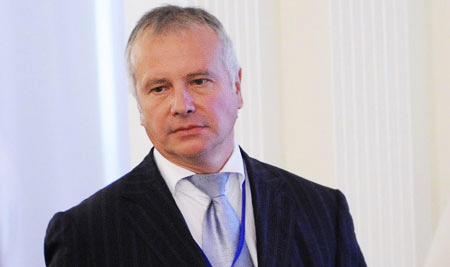Expert says Karabakh conflict discussion at NATO Summit may contribute to progress in settlement

Discussion of the Armenian-Azerbaijani Nagorno-Karabakh conflict on the sidelines of the NATO summit in Warsaw may contribute to progress in its settlement, Alexander Rahr, a famous German political scientist, told Trend on July 8.
“One shouldn’t miss such an opportunity to settle the Nagorno-Karabakh conflict,” Rahr said, adding that any dialogue, especially with the support of the European public, is the correct one.
For over two decades, Azerbaijan and Armenia have been locked in conflict which emerged over Armenia's territorial claims against its South Caucasus neighbor. Since a war in the early 1990s, Armenian armed forces have occupied 20 percent of Azerbaijan's territory, including Nagorno-Karabakh and seven surrounding regions.
Over the entire period of its existence, the OSCE Minsk Group, which acted as the only mediator in resolution of the conflict, failed to move forward in resolving the long lasting conflict.
Meanwhile, Rahr believes that the OSCE should become the main force for settlement of the Nagorno-Karabakh conflict, and not NATO, because NATO has no relation to the South Caucasus region.
“But if the leaders of the NATO countries come together, and if at the same time they are the leaders of the OSCE countries, there is nothing wrong with that,” the expert said.
He added that after the escalation of the situation in Nagorno-Karabakh in April, the international community understands that it’s necessary to pay more attention to the settlement of this conflict.
“There is an international position that all the occupied territories of Nagorno-Karabakh should be returned to Azerbaijan,” the political scientist said. “There are no problems with it. The only issue is trust, which, apparently, lacks here.”
The expert expressed hope that some new idea can be offered at the NATO summit with the assistance of the OSCE leaders on how to restart the process of the conflict’s settlement. He added that strengthening of the OSCE Minsk Group, inclusion of new states in it and improvement of its status may help to restart this process.
Rahr said that the transformation of the OSCE Minsk Group into the Minsk process, like it was in Ukraine, may help the Nagorno-Karabakh conflict’s settlement. The expert said that in such case, the mediator countries are not just observers, but are involved in the settlement of this conflict and ensure that this process will go until the end.
“If there were states which entered this process with their diplomatic tools, diplomats and missions, it would have reached another level,” Rahr said. “No one wants the territorial conflicts remaining unresolved for already a quarter of the century to continue existing in Europe.”
Two decades of talks mediated by the OSCE MG group have failed to produce a breakthrough, and the four-day war further undermined the hope for a peaceful resolution.
The renewed hostilities, the worst since the ceasefire deal signed in 1994, were assessed as the result of inactivity of the international community, which turned blind eye to the injustice towards Azerbaijan.
Even though both sides avoided escalation into a full-scale war, the international community and the mediator countries realized that the truce in Nagorno-Karabakh is fragile, and the conflict could easily accelerate anew.
---
Follow us on Twitter @AzerNewsAz
Here we are to serve you with news right now. It does not cost much, but worth your attention.
Choose to support open, independent, quality journalism and subscribe on a monthly basis.
By subscribing to our online newspaper, you can have full digital access to all news, analysis, and much more.
You can also follow AzerNEWS on Twitter @AzerNewsAz or Facebook @AzerNewsNewspaper
Thank you!
